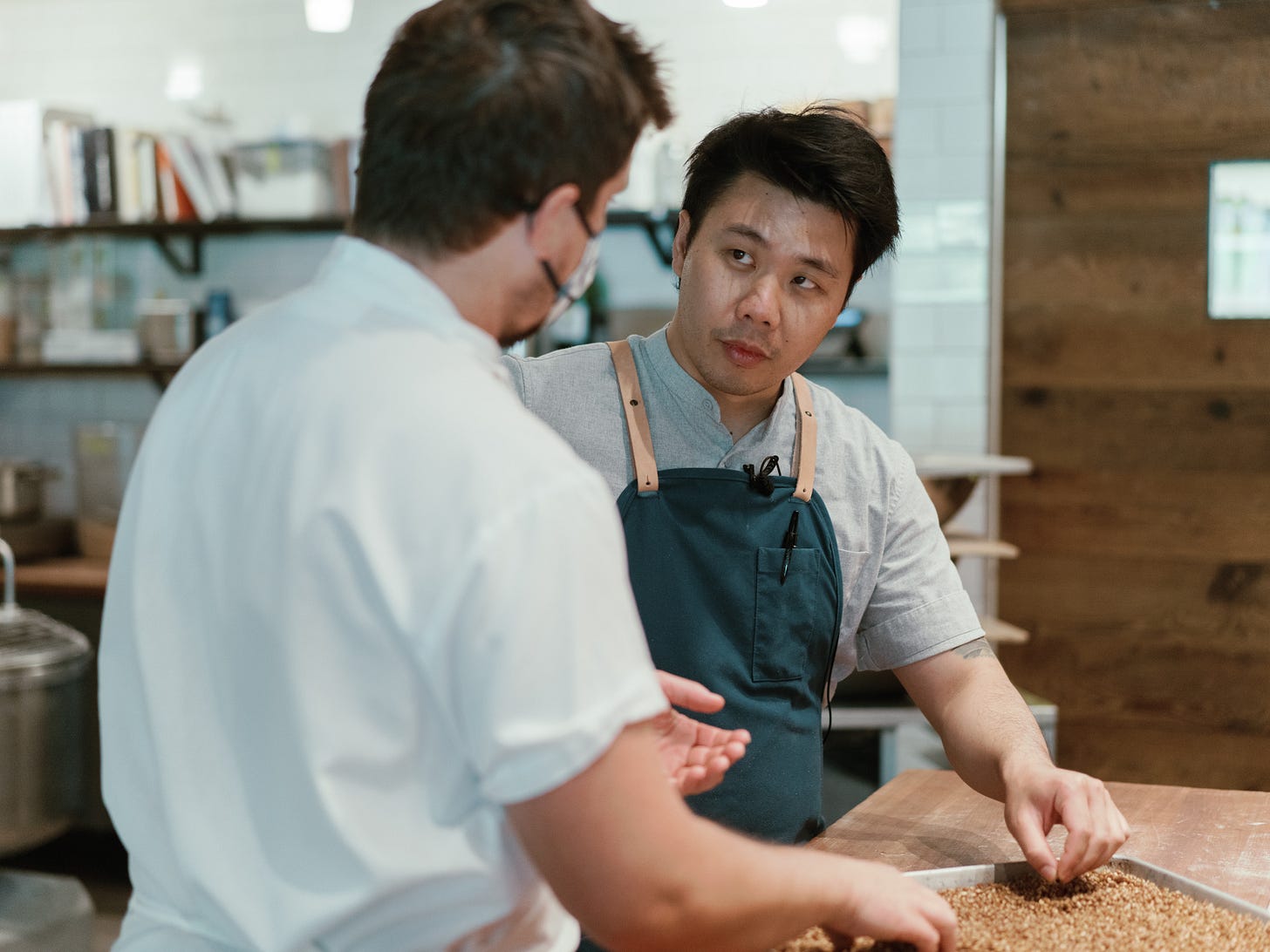16: A Post-Pandemic Interview with Jonathan Tam
On unexpected opportunities, parental secrets, and why those rumors about a Cantonese restaurant aren't exactly accurate
Hi there,
Do you know how sushi became a global phenomenon? I got my first inkling of this mind-boggling story from David Chang, who years ago told me that the sushi’s rise to international culinary dominance started in the 1980s when the Reverend Sun Myung Moon, the messianic founder of the Unification Church, a Korean religious organization urged his followers to get into the fresh seafood business. Doing a little poking around myself, I learned how, to this day, the sushi industry in the US—everything from restaurant franchises to distribution networks to the fishing boats themselves— is largely controlled by a shadowy company called True World that is associated with Moon’s Church. On Sunday, the New York Times published Daniel Fromson’s full and utterly fascinating account of this history, one that includes such tidbits as how sushi, which originated in China, was for most of its history fermented, not fresh; how it was so closely associated with urban areas that, as late as the 1940s, there were places in rural Japan where no one had heard of it; and how in many American cities today, True World supplies between 70-80% of mid and high-end sushi restaurants.
There’s a lot of discussion these days about cultural appropriation, and I cringe as much as anyone at those “French Tacos” with the strangely nonsensical name popping up throughout Copenhagen. But the sushi story is a powerful reminder that, however much we may conceive of authenticity in food as a kind of purity, cuisine is almost always the product of encounter and exchange.
I was thinking about that when I spoke with Jonathan Tam for this week’s Post-Pandemic Interview. Tam worked at Relæ—one of the restaurants that has had the greatest impact on making Copenhagen the gastronomic powerhouse it is today—since Christian Puglisi opened it in 2010 and was head chef for over four years before it closed in December 2020. He’s about to open his own restaurant, Jatak, which has been the subject of much excited (if sometimes inaccurate) anticipation. But in between the shuttering of Relæ and the launch of the new place, he’s had some extraordinary experiences, and not only because he’s been grappling with the extreme uncertainty of building a restaurant in the middle of a pandemic. Thanks to a game-changing residency at Stone Barns in New York (and some surprising interactions with his parents) he ended up connecting more closely with his Chinese heritage even while he clarified why Jatak wouldn’t be a purely Chinese restaurant. Canada, China, Vietnam, Denmark: Tam has ties to all of them, and he wants his cooking to reflect the whole of that self.
Thanks for reading,
Lisa
You’ve gone through this huge transition during the pandemic, from the closing of the restaurant where you worked for 10 years to getting ready to open a new one on your own. Was this a change that had been building for a while, or has it all come as a surprise to you?

